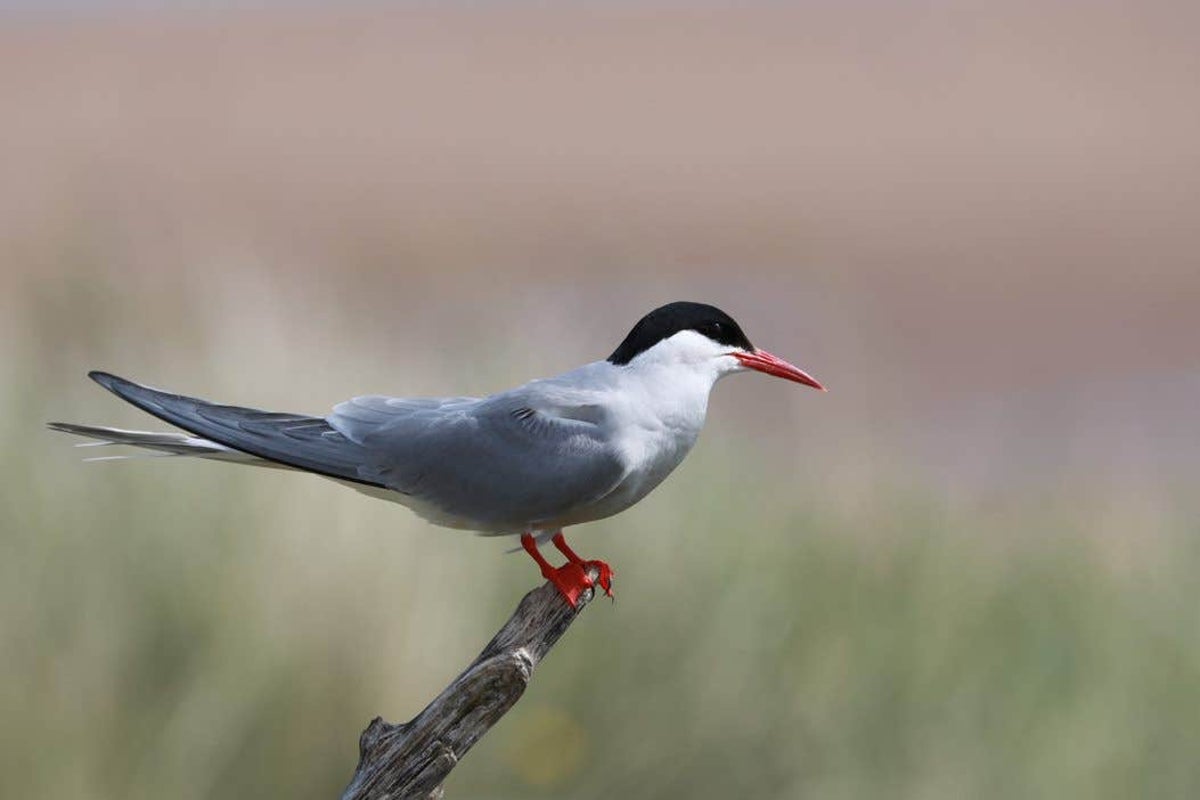
Wildlife experts have reported a “devastating” bird flu outbreak at the UK mainland’s biggest breeding colony of Arctic terns.
In the last two weeks, more than 600 dead chicks have been recovered from the Long Nanny site, on the Northumberland coast, which is looked after by National Trust rangers.
Long Nanny is usually a safe breeding ground for the Arctic terns and the flu outbreak has come at the peak of the breeding season, threatening to undo gains made in recent years.
The site is also important for the rarer little terns, and there are fears they too could be affected.
A bird flu outbreak on the nearby Farne Islands killed over 6,000 seabirds last year.
A team of six rangers typically works at Long Nanny, on 24-hour watch throughout the breeding season, to protect the eggs from natural predators including foxes and stoats.
But this year, it seems bird flu is posing a bigger challenge to the seabirds which migrate from their northern hemisphere breeding grounds to the Antarctic and back again each year.
A couple of weeks ago, we started to notice that some of the chicks were dying and since then we have picked up over 600 dead Arctic tern chicks from across the site— Lead ranger James Porteus
James Porteus, lead ranger at Long Nanny, said: “The season started so well, with over 1,600 pairs of Arctic terns returning to breed this season – the highest number of breeding pairs at the site since 2018, and we had recorded 2,600 eggs.
“But, a couple of weeks ago, we started to notice that some of the chicks were dying and since then we have picked up over 600 dead Arctic tern chicks from across the site.
“We have also started to discover some dead adults now which is equally heartbreaking and worrying.
“Although we have been monitoring for and removing dead birds throughout the breeding season, we fear that an infected bird may have got into the colony and infected our breeding Arctic terns.”
Ben McCarthy, head of nature conservation and restoration ecology at the National Trust, said: “After last year’s outbreak of bird flu on the Farne Islands, when Long Nanny was unaffected, we were really hopeful that the colony would escape the worst of this deadly disease.
This news is devastating for these vulnerable birds and it will take years for the populations to recover— Ben McCarthy, National Trust
“However, this news, is devastating for these vulnerable birds and it will take years for the populations to recover.
“Seabirds are particularly vulnerable because they are long lived and have low productivity which means any reduction in breeding adults, or maturing young birds can have a very significant impact on whole populations.
“We are working with our partners to get a better understanding of the long-term impact of bird flu on our globally important seabird populations and supporting our ranger teams who have been working so hard to protect and build numbers of these special birds.”
Visitors to the area are being advised to avoid disturbing any of the birds at Long Nanny by keeping a safe distance from the colony and keeping dogs on a short lead at all times.







